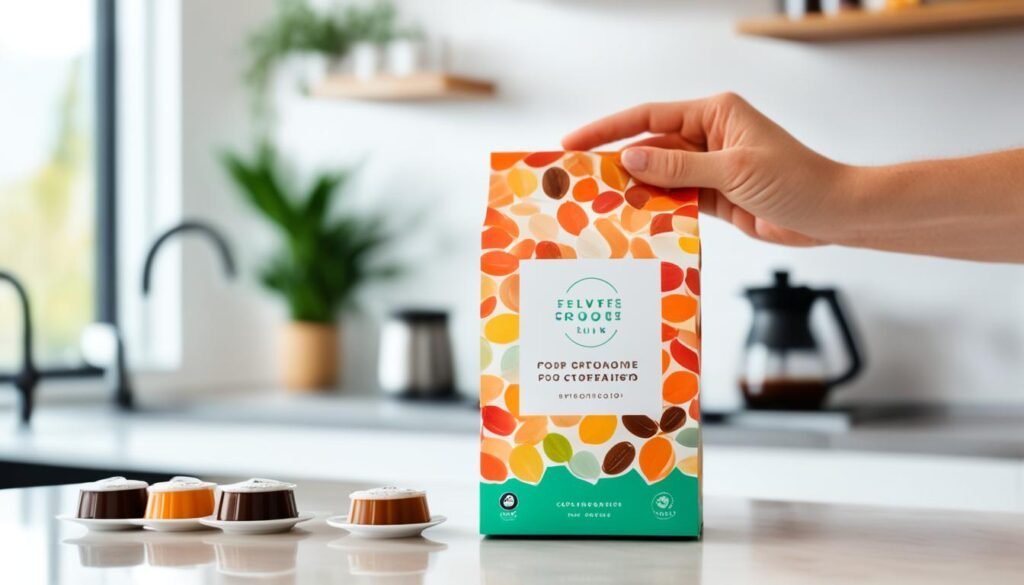When you add creamer to your coffee, it affects how your body absorbs caffeine rather than changing the caffeine content itself. Creamers with higher fat content, like dairy creamers, can slow down caffeine absorption, leading to a more gradual caffeine impact.
Non-dairy options such as almond or oat milk provide alternatives that are lower in calories and lactose-free without significantly altering caffeine effects. Your metabolism, dietary habits, and the presence of fats and specific enzymes also influence how caffeine is processed in your body.
Choosing the right creamer not only impacts the taste and texture of your coffee but also indirectly influences how you experience caffeine. It's essential to understand these subtle effects on your daily coffee routine for a more personalized experience.
Creamer Types and Choices

When choosing a creamer for your coffee, it's important to explore the different options available and their unique benefits.
Non-dairy creamers like almond or oat milk offer a lactose-free and lower-calorie alternative to traditional dairy options. These choices are ideal for individuals looking for a creamy texture without dairy, making them suitable for those with lactose intolerance or specific dietary preferences.
Moreover, non-dairy creamers come in a variety of flavors, allowing coffee lovers to customize their drinks.
For those aiming for a healthier diet, plant-based creamers present a nutritious option without sacrificing taste.
Caffeine Absorption Factors
Several factors influence how caffeine is absorbed in the body, such as individual metabolic rates and the presence of specific compounds. The breakdown of caffeine can vary significantly among people due to genetic variations and lifestyle choices.
Enzymes like cytochrome P450 in the liver are crucial for metabolizing caffeine effectively. Moreover, dietary factors, like the fat content in creamers, can impact caffeine absorption by slowing down the emptying of the stomach.
Age, hormonal levels, and certain medications can also affect the speed at which the body processes caffeine. Understanding these factors can empower individuals to make informed decisions about their coffee intake, creating a sense of shared knowledge and experiences within the community.
Health Benefits of Creamers

Adding creamers to your coffee can have positive health effects, especially when choosing non-dairy or fortified options. These creamers not only improve the nutritional value of your coffee but also cater to different dietary requirements. Here are some health benefits to consider:
- Enriched Nutrients: Non-dairy creamers are often fortified with essential vitamins and minerals like calcium and vitamin D, which are beneficial for bone health.
- Lactose-Free: Opting for non-dairy creamers is a great alternative for individuals with lactose intolerance, as it prevents digestive issues.
- Low-Calorie Alternatives: Some creamers offer lower-calorie options, aiding in weight management goals.
- Heart-Friendly: Plant-based creamers, such as those made from coconut or almond, contain healthy fats that support heart health.
Flavor Enhancements
Customizing your coffee with creamers not only adds richness but also lets you tailor your coffee experience to your unique taste preferences. With a variety of options available, from traditional dairy to creative non-dairy alternatives, you can explore a range of flavors that enhance the natural aroma of your coffee.
Popular choices like vanilla, hazelnut, and caramel can sweeten your brew and balance out any bitterness. Seasonal flavors such as pumpkin spice and peppermint mocha bring a festive twist to your cup, making each sip special.
Creamers also contribute to a creamy texture, improving the overall mouthfeel and enjoyment of your drink. By personalizing your coffee with different creamers, you can create a sense of belonging and savor your ideal coffee moment.
Creamer and Coffee Balance

Finding the perfect balance between creamer and coffee is key to enhancing the overall flavor experience. Consider these tips:
- Choice of Creamer: Whether you opt for dairy or non-dairy creamer, it will impact the taste of your coffee.
- Quantity of Creamer: Begin with a small amount and adjust based on your taste preferences.
- Strength of Coffee: Stronger coffee may need more creamer to achieve a harmonious taste.
- Temperature Harmony: Ensure the creamer blends well with the coffee's temperature to prevent any undesirable effects like curdling.
Conclusion
In summary, the interplay between different types of creamers and caffeine absorption highlights the significance of making informed choices when preparing coffee.
While creamers can enhance flavor and offer health benefits, their effect on caffeine levels, although minor, is noteworthy.
Understanding these interactions enables better control of caffeine consumption, taking into account individual preferences and sensitivities.
Therefore, the combination of creamer and coffee is not just about taste but also a strategic decision for promoting health and overall well-being.












